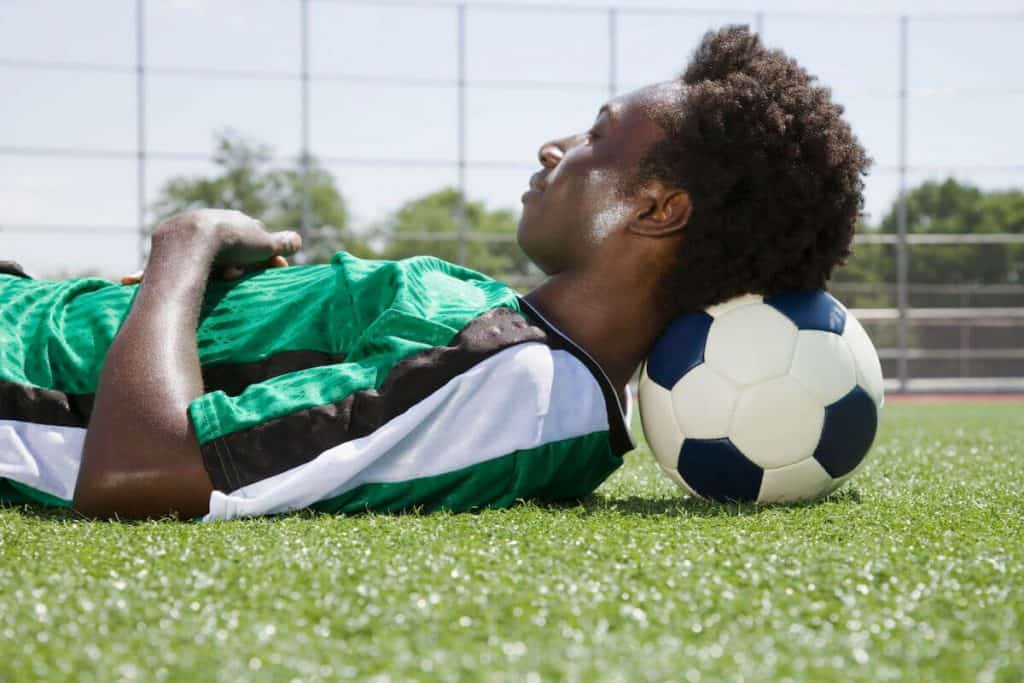
Athletes need optimal rest and recovery to improve sports performance. Poor rest can lead to exhaustion, loss of balance and concentration, and even injuries. So, here are sleep tips for athletes for maximized sportsmanship.
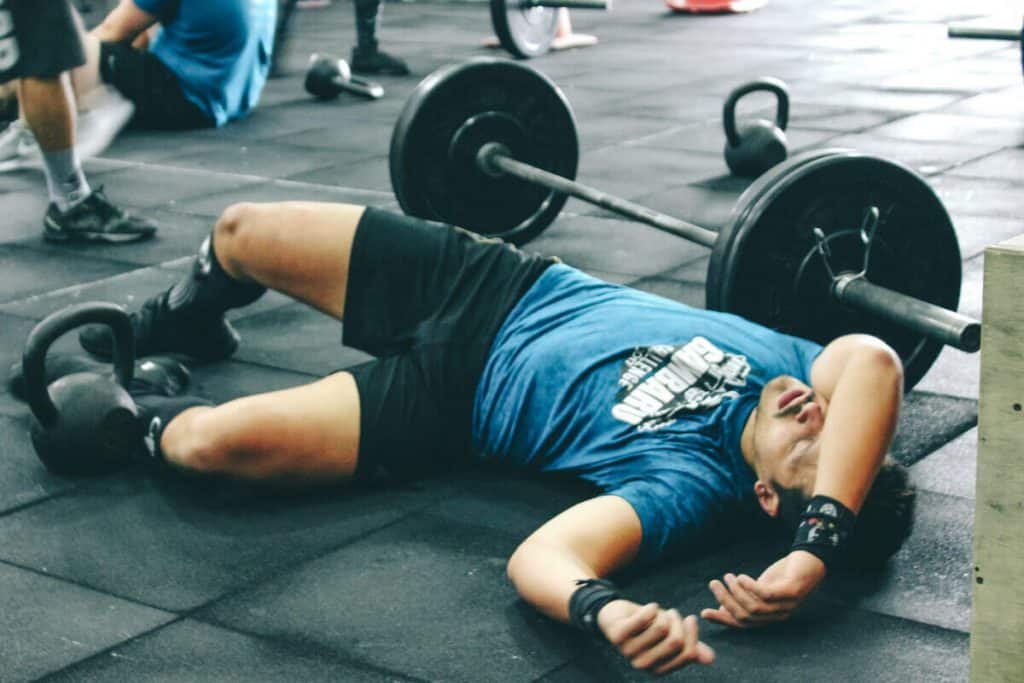
Science says sleep is needed!
According to the CBHS Health Fund, around 30,000 Australian athletes are sent yearly in hospitals, whereas an estimate of $2 billion is spent treating injured athletes. Meanwhile, research in Sports Medicine found 36 Australian athletes diagnosed with chronic fatigue syndromes (CFS).
Another study shows that an increase in sleep quality and duration improved a basketball collegiate accuracy when shooting the ball. For athletes, sleep and rest are necessary to survive in their career.
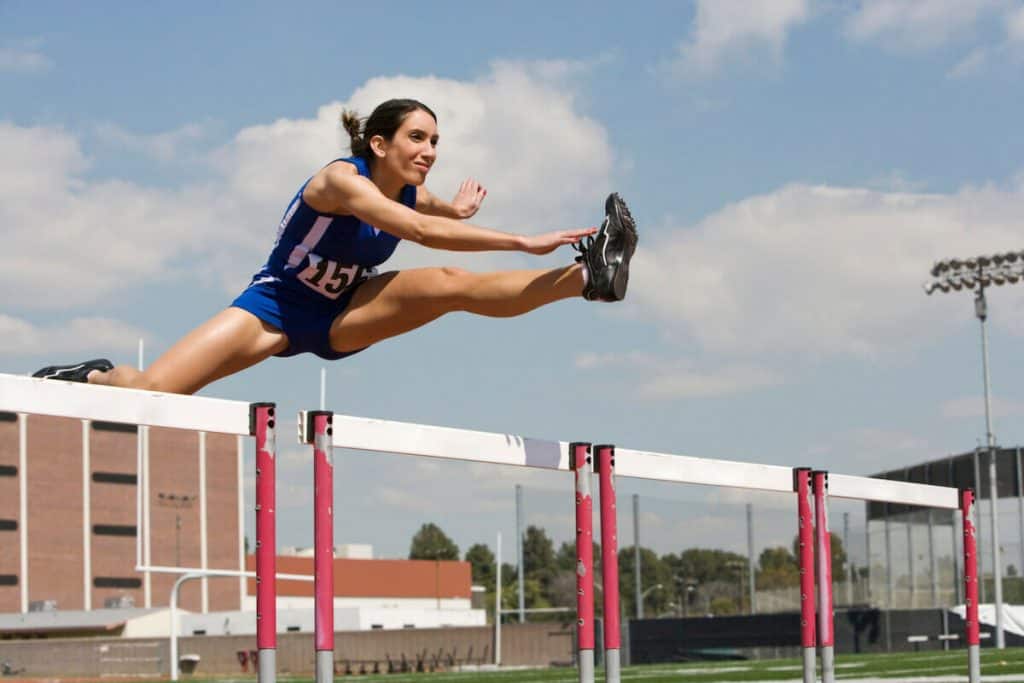
How sleep improves sports performance
We’ve read some scientific facts about sleep and rest. Now, see how it can improve sports performance.
Sleep and rest promotes muscle growth and recovery
Athletes, especially bodybuilders, require sleep for muscle restoration and development. During sleep, the creation of growth hormone and protein synthesis happens. During REM, the body gets to repair muscle fatigue, tissues, bones, and organs. Even if you’re not a bodybuilder, but someone who trains competitively, sleep and rest are necessary.
Fewer injuries
A lack of sleep increases the rate of injuries during gameplay. Tired athletes lose concentration and balance – thus, susceptible to injuries and torn ligaments. The knees, arms, and lower back are often the biggest risks when the person exerts too many efforts on the line.
Prevents chronic fatigue
Overexertion of activity and training can lead to chronic fatigue syndrome, especially when you sleep around five hours or less. CFS is known as a disorder with symptoms like extreme fatigue, insomnia, muscle pain, loss of memory and focus, and returning fever. Treatments may vary per patient, but it’s important to make lifestyle changes like creating a better sleep routine every night.
Strengthens immune system
Sleep loss can increase the risk of high cortisol levels, heart problems, obesity, and blood pressure among many things. This can have a short-term or long-term consequence that leads to mortality.
Improves overall performance
Sleep brings optimal results in fitness, cognitive abilities, balance, coordination, and reaction time. It can improve reaction time, accuracy, or memory in basketball, volleyball, weightlifting, or even chess!
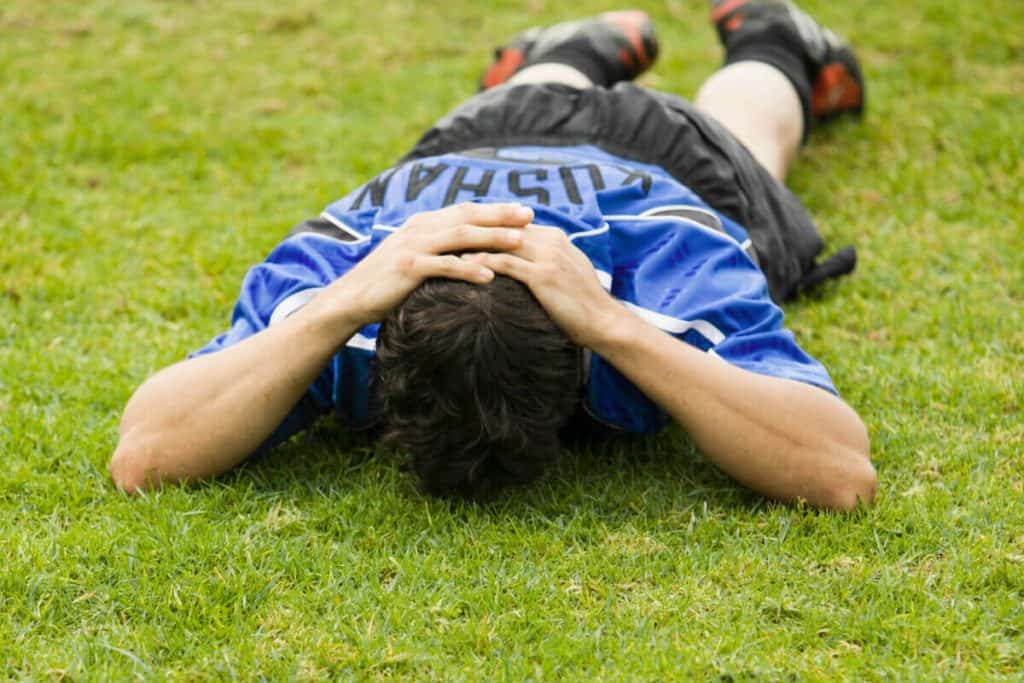
Why athletes don’t get enough sleep
There are various reasons why sportspeople don’t get the sleep they need. It involves a lot of factors like stress, overtraining, food, and drugs.
Stress and anxiety. Anxiety about one’s performance or pre-game jitters can affect sleep because it’s hard to quiet the mind down.
Overtraining. Too much adrenaline rush in the body delays sleep and prohibits it. Overtraining can even negatively impact mood, lifestyle choices, and muscle restoration.
Caffeine and energy drinks. A spike in the sugar can cut sleep schedule at night and might even have one’s body gone erratic.
Erratic schedules. An athlete may be sleep deprived especially when the game is nearing. For students, balancing their schoolwork, scholarship, and gameplay can be tedious and tiring.
Performance-enhancing drugs. Just like with power drinks, it can perk you up; however, it has its own side effects. PED substances can induce stress on the heart, increase aggressiveness, hypertension, and palpitations. Some of these drugs can also increase the likelihood of nervousness, muscle loss and cramps, sweating, and sleeplessness.
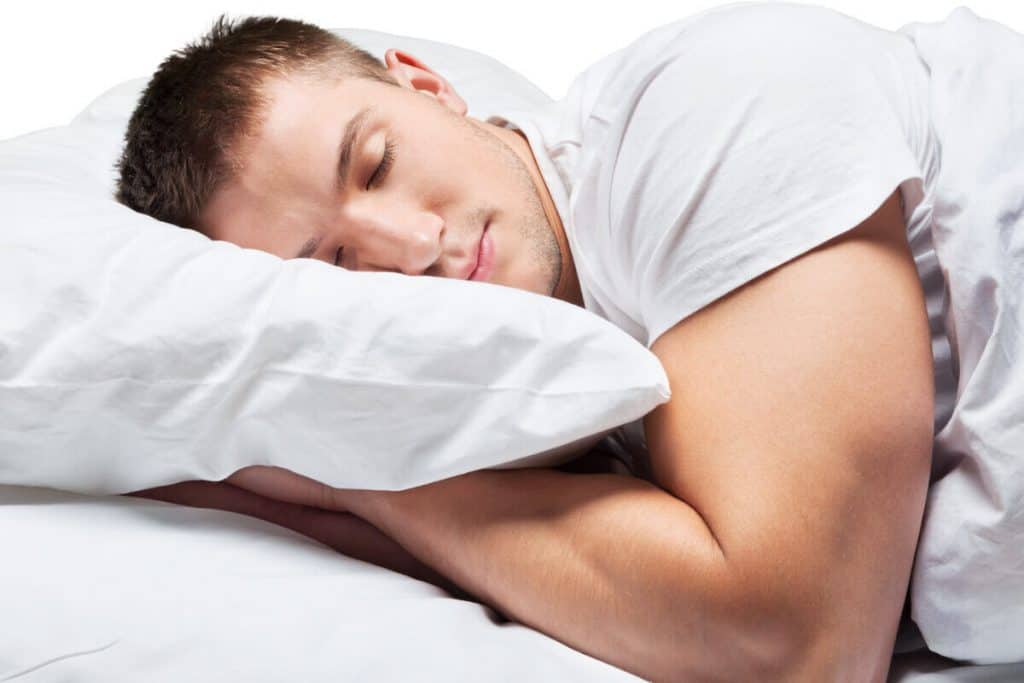
Sleep tips for athletes
Athletes often push themselves in the brink of exhaustion and lie awake at night finding that falling asleep is quite hard to do. So, how can you that quality sleep you needed to? Here are sleep tips to get you started.
Stick to a bed routine
A long practice on late afternoons to evenings can delay your sleeping hours. Plan to have a wind-down routine like a hot bath or a 30-minute break from gadgets. Blackout the lights and close the curtains to induce you to sleep. Also, keep your room cool and quiet to prepare your body for rest. Don’t exert too much exercise. If you must, keep it to simple stretching or yoga.
Stick to your schedule
Before and after the game can whack your sleep quality. It’ll be hard to go back to your usual sleeping schedule. After the game, if everything has winded down, stick to your usual time and allow your body to regulate to its internal clock. What’s more, it’s best to keep your sleep duration 7 to 9 hours.
Avoid caffeine and alcohol on late nights
Sometimes you just have to party after training or game nights. It’s okay to plan on drinking with your buddies, but if you’re suffering from sleeplessness, it’s best to avoid it for some time. Also, cut your coffee intake at least 3 hours before heading to bed.
Don’t take naps late in the afternoons
Power naps can be beneficial for you, but don’t do it late in the afternoons. This can have a detrimental effect on your sleep quality at night. Some instances can even induce insomnia.
Buy sleeping materials
Your pillows and mattresses can make a difference when you sleep. For instance, runners use pregnancy cushions because it supports their body and leg needs. What’s more, athletes who suffer mild lower back pains invest in firm and cooling mattresses to relieve of their injuries. Suffering from neck and shoulder pain? You might need a conforming pillow to help you alleviate that.



